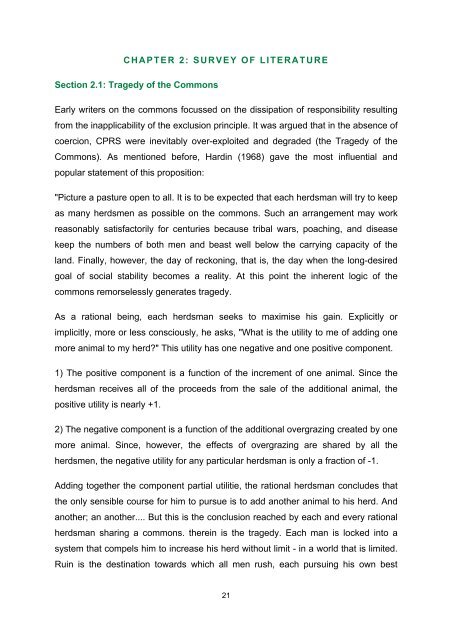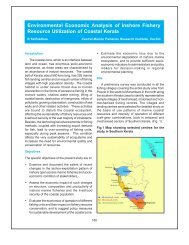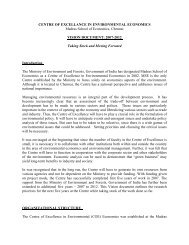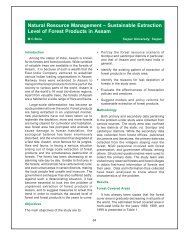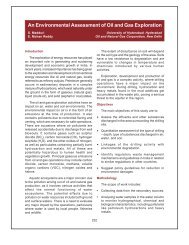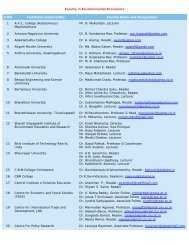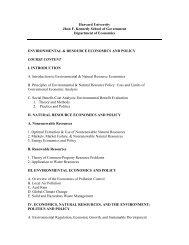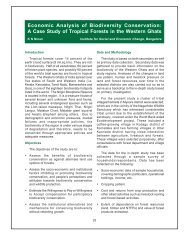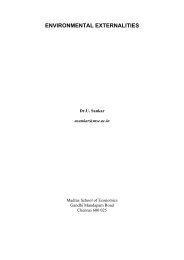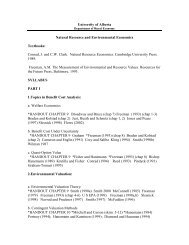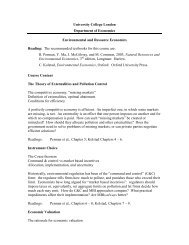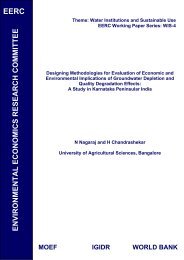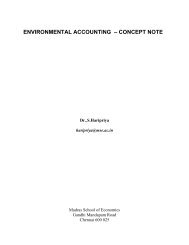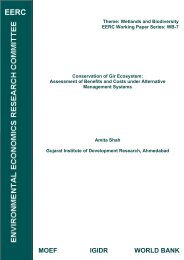PDF 3.08 MB
PDF 3.08 MB
PDF 3.08 MB
You also want an ePaper? Increase the reach of your titles
YUMPU automatically turns print PDFs into web optimized ePapers that Google loves.
CHAPTER 2: SURVEY OF LITERATURE<br />
Section 2.1: Tragedy of the Commons<br />
Early writers on the commons focussed on the dissipation of responsibility resulting<br />
from the inapplicability of the exclusion principle. It was argued that in the absence of<br />
coercion, CPRS were inevitably over-exploited and degraded (the Tragedy of the<br />
Commons). As mentioned before, Hardin (1968) gave the most influential and<br />
popular statement of this proposition:<br />
"Picture a pasture open to all. It is to be expected that each herdsman will try to keep<br />
as many herdsmen as possible on the commons. Such an arrangement may work<br />
reasonably satisfactorily for centuries because tribal wars, poaching, and disease<br />
keep the numbers of both men and beast well below the carrying capacity of the<br />
land. Finally, however, the day of reckoning, that is, the day when the long-desired<br />
goal of social stability becomes a reality. At this point the inherent logic of the<br />
commons remorselessly generates tragedy.<br />
As a rational being, each herdsman seeks to maximise his gain. Explicitly or<br />
implicitly, more or less consciously, he asks, "What is the utility to me of adding one<br />
more animal to my herd?" This utility has one negative and one positive component.<br />
1) The positive component is a function of the increment of one animal. Since the<br />
herdsman receives all of the proceeds from the sale of the additional animal, the<br />
positive utility is nearly +1.<br />
2) The negative component is a function of the additional overgrazing created by one<br />
more animal. Since, however, the effects of overgrazing are shared by all the<br />
herdsmen, the negative utility for any particular herdsman is only a fraction of -1.<br />
Adding together the component partial utilitie, the rational herdsman concludes that<br />
the only sensible course for him to pursue is to add another animal to his herd. And<br />
another; an another.... But this is the conclusion reached by each and every rational<br />
herdsman sharing a commons. therein is the tragedy. Each man is locked into a<br />
system that compels him to increase his herd without limit - in a world that is limited.<br />
Ruin is the destination towards which all men rush, each pursuing his own best<br />
21


